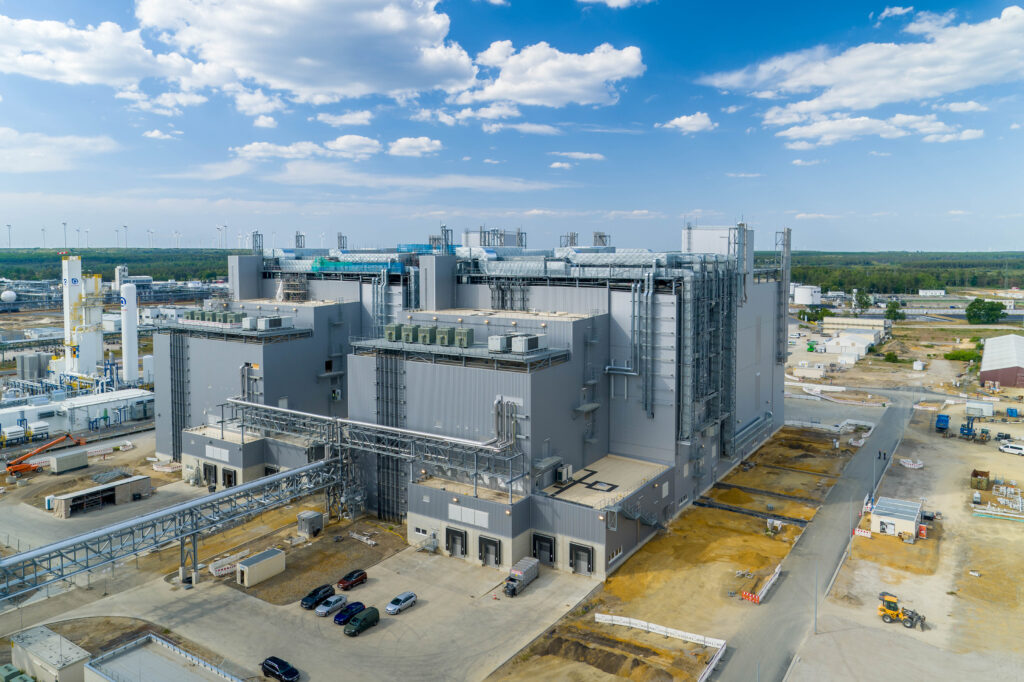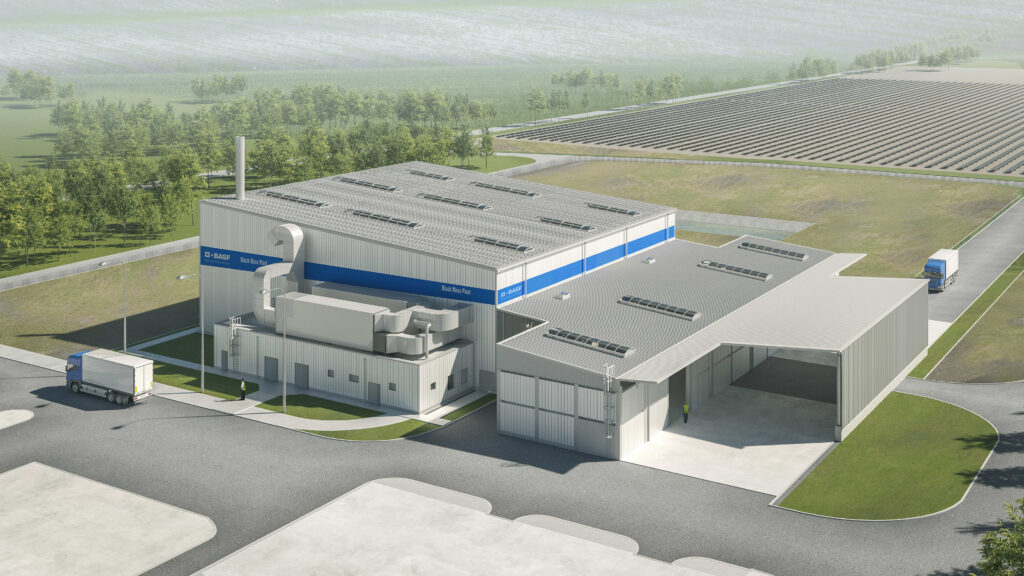Battery material production logically placed on same site as recycling facility
- PostedPublished 31 December 2023
Chemicals firm BASF has established a state-of-the-art facility for battery material production and recycling in Schwarzheide, Germany with both production and recycling at the same location.
Minimising transportation of materials between the two facilities reduces costs and environmental impact while improving operational and logistical efficiency.
Co-location of both production and recycling epitomises the concept of a closed-loop system. BASF can mechanically process end-of-life batteries and waste from battery production to produce “black mass,” which contains key metals such as lithium, nickel, cobalt, and manganese used in cathode active materials.

These valuable metals can be sustainably recovered through chemical processes to produce new cathode-active materials. This circular approach promotes resource conservation, reduces reliance on virgin materials and strengthens economic security.
With both production and recycling operations in the same location, teams working on different aspects of the battery value chain can collaborate more closely, improving exchange of expertise, innovative ideas and best practices, driving continuous improvement and advancements in battery material production and recycling technologies.
The newly unveiled facility not only marks Germany’s first large-scale production facility for high-performance cathode active materials but also Europe’s first fully automated facility of its kind.

BASF’s cathode-active materials are known for their significantly lower carbon footprint, achieved through proprietary energy-efficient production technologies and the use of renewable energy sources.
Construction of the facility is already underway, and it is expected to begin operations in 2024. The establishment of these two plants will expand BASF’s product portfolio and create approximately 180 new jobs.
Already sold out for the coming years, the plant will supply tailored products to European cell manufacturers and automotive OEMs.
BASF has already implemented closed-loop solutions in Asia and North America, offering cathode active materials based on recycled metals to conserve resources.
- CategoriesIn Latest News
- Tagsbasf, Batteries, battery, electric vehicles

